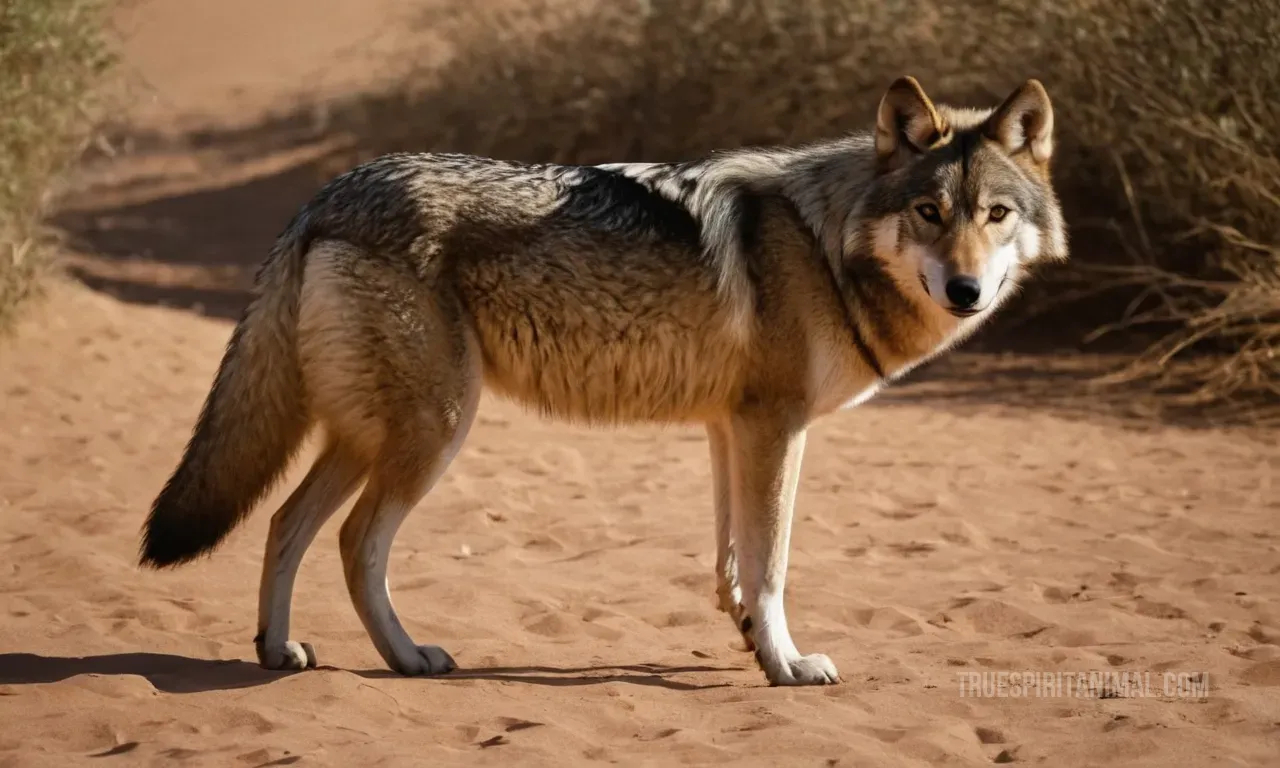Arabian Wolf Symbolism and Meaning

The Arabian wolf, also known as the Middle Eastern wolf or the Asiatic wolf, is a fascinating creature that holds significant symbolic meaning in various cultures. This article will explore its symbolism and meaning in different contexts, including mythology, folklore, and spirituality.
Introduction
The Arabian wolf, native to the Middle East and Central Asia, has long been a subject of fascination for humans due to its mysterious nature and unique characteristics. As apex predators at the top of their food chain, they have played an essential role in shaping ecosystems and inspiring stories throughout history. Their symbolism is deeply rooted in various cultures, from ancient civilizations to modern times. This article will delve into the significance of the Arabian wolf in different aspects of life, including spirituality, folklore, and cultural beliefs.
Mythology and Folklore
In many mythologies, wolves are often associated with cunningness, loyalty, and strength. In Middle Eastern cultures, they represent protection and guidance. They were considered guardians of the night, keeping away evil spirits and ensuring safety for their pack members. In Arabian folklore, they were believed to be messengers between humans and the divine realm. The ancient Arabs saw them as symbols of wisdom and intelligence. Their howls were thought to carry messages from gods or spirits. They were also associated with the moon, symbolizing intuition and psychic abilities.
- Wisdom: Wolves are known for their keen senses and strategic hunting techniques. This made them emblems of knowledge and understanding in many cultures.
- Loyalty: Pack dynamics showcased strong bonds among members, reflecting loyalty and unity.
- Strength: Their physical prowess and survival skills symbolize resilience and adaptability.
Spiritual Significance
In spirituality, wolves represent transformation and change. They are seen as guides on life’s journey, helping us navigate through challenges. In Native American cultures, they signify rebirth and renewal. For some tribes, they symbolize the power of intuition and psychic abilities.
- Transformation: Wolves shed their fur annually, symbolizing personal growth and renewal.
- Intuition: Their keen senses represent heightened awareness and inner wisdom.
Cultural Significance
In Arabian culture, wolves are revered for their family values. They live in close-knit packs, mirroring human societies’ social structures. This reflects the importance of unity and cooperation. In Bedouin tribes, they symbolize loyalty and protection.
- Family Values: Wolves embody strong familial bonds, emphasizing community support.
- Protection: They guarded caravans against desert bandits in ancient times, earning them respect.
Symbolism in Art and Literature
Wolves appear in literature and art as symbols of freedom and independence. For instance, they’re central figures in ‘The Little Red Riding Hood,’ representing danger or wildness. In Middle Eastern art, they symbolize bravery and resilience against adversity.
- Freedom: Wolves embody the spirit of adventure and exploration.
- Independence: They’re often depicted as solitary creatures, signifying self-reliance.
In Dreams
Dreaming about wolves can indicate changes in your life or inner transformation. Positive dreams suggest personal growth; negative ones may warn of potential dangers ahead.
- Personal Growth: A dream about a wolf could mean facing challenges head-on.
- Inner Transformation: It might signal an upcoming shift in your life.
Conclusion
The Arabian wolf’s symbolism is multifaceted, reflecting various aspects of human nature. Its representation varies across cultures and beliefs. They embody wisdom, loyalty, strength, transformation, intuition, family values, protection, freedom, and independence. Understanding these meanings can enrich our understanding of this majestic creature. Whether in mythology, spirituality, or dreams, their symbolism is profound and insightful.





